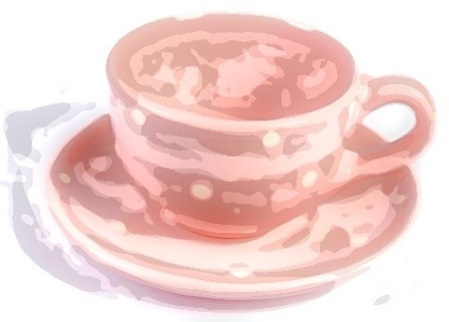I am retreating from the world of politics today to the more ordered world of formal poetry. The sestina is an extremely “ordered” form of poem with a strict line structure that focuses on six repeating “end words,” (that is, the last word in each line.) Thankfully, these end words do not have to rhyme.
There are six six-line stanzas, and six repeating end words. At the end of the six six-line stanzas, there is a three-line stanza (the “envoie”), in which the six repeating words are used again, two per line.
The hard part is not just repeating the six words, but repeating them in the right order; each stanza turns itself partly inside out for the next one. The music of the poem comes from the shifting, and sometimes surprising, echo of the repeating words. If the meaning and tone of the words can also shift through the poem, a kind of irony can be found.
Here’s how the form works:
For notation purposes, I’ll assign each end word a number – 123456. That is the order of the first stanza.
The second is 615243. The third is 364125, the fourth 532614, fifth 451362, and finally 246531. You’ll notice that the last line of each stanza becomes the first of the next, the second- to-last line, the third, etc. It helps to think of the stanzas as interlocking or clasped hands, with the clasp between the fingers moving up the hands with each stanza. (I guess they’d have to be Anne Boleyn-style hands – six fingers.)
There are different forms for the order of the words in the last three-line stanza; my favorite puts the words in reverse of their original order, meaning 65,43,21.
The form is hard, yes. A tip: once you’ve decided on your repeating words, write them down in the prescribed order for the entire poem. (This means that you’ll have a nearly blank page or so, with just a column of numbers and words on one side.) This list will not only help you keep your focus; it will also avoid the frustration of having a nearly finished poem that, you suddenly realize, did not quite follow the rules. (If it’s a great poem as is, terrific. But if you wanted to write a great sestina, this can be upsetting.)
It is useful to pick end words with flexible meanings and usage (meaning words that can be either nouns or verbs, even homonyms). Commonplace words are easier, but less interesting.
I have to confess I have only written a couple of sestinas. They are long poems; beginning one is a big commitment. But a completed one is really quite satisfying. Here’s one of mine:
(As always, keep in mind that pauses are intended to be taken only at punctuation breaks, not at line or stanza breaks, unless punctuated. )
Pink
Trees full of blossom, the night smells pink
though it’s black, a thick summer darkness
barely held back by window screen.
I hear dishes in the sink, a familiar clatter,
and think of the summer kitchen
of my youth (my grandma’s), where the women wiped
the dishes, too many for the rack, wiped
the oilclothed table too; the men, skin pink
from glossy food, escaped the kitchen
glare, slinking into the darkness
of the den, the chatty t.v. clatter
a sound fluorescence against the dim screen.
There too, we were protected by a screen
from bites, buzz, wing, and the wind that wiped
that stretched-flat land, a soft clatter
of night and grass and damp that blew towards the pink
edge of dawn, an engine of chill darkness
that was only truly blocked by the glow of kitchen
yellow. I watched one aunt in the kitchen,
amazed that she never even tried to screen
her keen sense of life’s darkness.
When she looked at my grandmother, she often wiped
her eyes, and sniffing, face too pink,
cleaned with a banging clatter.
Though she was always a center of clatter,
that aunt. She had a kind of two-walled kitchen
in her own house, open; and wore hot pink,
played jokes, charades, a half-hearted screen
of despondency, still, the good housewife, she wiped
the smallest speck from her counters. Her own darkness
seeming inevitable, it was a darkness
she hurried towards, smoking, drinking hard, the clatter
of uncertainty (as to timing) wiped
her out. In the meantime, she cleaned-—my grandma’s kitchen
after her death, and, at the Funeral Home, made a quick screen
of the corpse. “That lipstick’s way too pink,”
she hissed, then wiped my grandma’s lips like a kitchen
stain. Despite the clatter in my brain, I served as screen,
a guard in the blossomed darkness, as she rubbed off pink.
(All rights reserved. Karin Gustafson)


Recent Comments